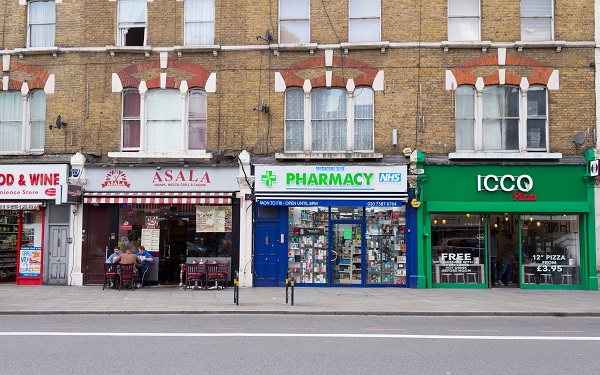 Proposals to allow developers to convert a range of commercial buildings into residential dwellings without submitting a planning application puts local essential services as risk, the Royal Town Planning Institute (RTPI) has warned.
Proposals to allow developers to convert a range of commercial buildings into residential dwellings without submitting a planning application puts local essential services as risk, the Royal Town Planning Institute (RTPI) has warned.
The government is currently consulting on the new Permitted Development (PD) right which would allow change of use from commercial, business and service uses (Class E) to residential use (C3) in England. Class E, which includes primary offices, restaurants, shops, professional services and light industrial premises – was introduced as a new use class in September 2020.
In its formal response to the consultation, which closes today (28 January 2021), the RTPI says the proposals, in their current form, are unacceptable and sets out a series of conditions it would insist upon if the proposals were to go ahead.
Head of policy, Richard Blyth said: “While we recognise the need for greater flexibility, expanding PD rights in this way would not only tear at the fabric of local character, weaken the capacity to deliver locally agreed visions and further jeopardise the vibrancy of our high streets and town centres, it could also lead to a huge increase in poor quality homes for the poorest in our society.
“Should residential conversions take place on a large scale affecting a high street, we are concerned at the potential loss of active frontages and the benefits they provide through informal surveillance and enhancements to the vitality and safety of an area. Essential local services such as convenience stores, pharmacies, solicitors and post offices could be wiped out for good, impacting those who can least afford to travel and reducing local employment.
“We also question the possible negative impacts on physical activity with gyms, swimming pools and sports and leisure facilities included within Class E.”
He added that once a commercial property has been converted to residential it would be prohibitively expensive to reverse that, given the higher value of residential land.
The RTPI is also concerned that the proposals could result in a significant increase in poor quality homes.
Blyth added: “We recognise that the government has started to address some of the highly unsatisfactory outcomes of office-to-residential PD, which saw some of the most disadvantaged people in our society living in what have been described as ‘modern-day slums’, but we remain acutely concerned that further safeguards are needed to ensure that the homes built in the early 2020s do not become the social disasters of the 2030s.
“Independent government-funded research, carried out by the University of Liverpool in 2020, has confirmed that health and wellbeing will be negatively impacted by the increased use of PD rights.”
In its consultation response the RTPI sets out a series of additional prior approval matters that it says must be considered if the proposals go ahead. These include the impact on the provision of essential services, access to amenities such as parks for outdoor fitness and exercise, the provision of fresh air through ventilation and the quality of design.
The RTPI also sets out two ‘red lines’ to prevent the creation of large areas of residential development in existing warehousing and supermarkets in highly unsuitable locations. These stipulate that there must be a size limit of 250 square metres on such change of use and the land must have been in retail or office use in December 2020. This is to prevent the exploitation of a loophole which could see warehouses and supermarkets ending up in residential use.
The RTPI supports extensions of hospitals and other premises which provide health services to the public during the Covid crisis.


